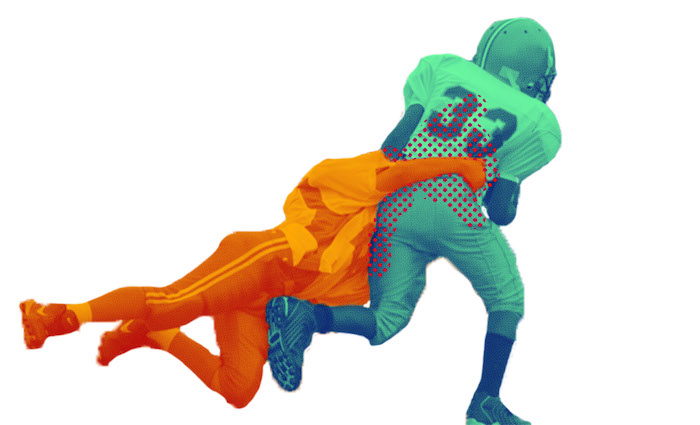On Jan. 21, the first known case of coronavirus in the United States was discovered in Washington state. By March 13, the NBA, NHL, PGA, NFL, XFL, MLS, NCAA, FIFA and several other organizations had all delayed or canceled games and events, with many leagues suspending their seasons indefinitely as a precautionary response to the spread of the coronavirus.
The rapid rate at which these developments have transpired and progressed across sports is something few, if any, anticipated. A week ago, the idea of professional sporting events being played without fans seemed laughable. But with new information and policy changes emerging nearly every hour, what comes next is unknown.
What would have seemed an impossibility just a few days ago is now a reality, and it has raised a number of questions regarding the future of sports.
What happens to those senior athletes who were in the middle of or entering into their final season of collegiate sports? For players who have spent days, months and years dedicating themselves to their sport and the chance of making a championship run—only to have it taken away at the last moment—is there anything that can be done to amend this lost opportunity?
For senior Sabrina Ionescu, point guard for the University of Oregon women’s basketball team and potential number one overall pick in next year’s WNBA draft, this final season was all about “unfinished business.” The NCAA championship that eluded Ionescu through the team’s first three seasons was within reach as they prepared for the 2020 NCAA tournament.
Now, for Ionescu, along with so many other seniors whose prolific college careers have been cut short, the unfinished business will remain just that—unfinished.
And what about the senior athletes who never even had the chance for their final season to begin? With the NCAA canceling all winter and spring championship competition, and many athletic conferences—including the Big Sky conference—electing to suspend all spring sports indefinitely, what can be done for the senior athletes whose seasons ended before they ever began?
University of Connecticut women’s basketball coach Geno Auriemma joined a growing number of voices advocating for college seniors to be granted an additional year of athletic eligibility in order to make up for the seasons that have been cut short or canceled. The NCAA announced on March 13 that it will grant another year of eligibility to “student-athletes who have participated in spring sports,” but a number of questions remain surrounding how this will impact financial aid for each athletic program. The unfortunate reality is that for many college athletes, this season was their only shot.
Within the realm of professional sports, the revenue lost for these industries as a result of canceling games and suspending seasons will have a ripple effect for years to come, influencing contracts, salary caps and even league champions years down the road. ESPN insider Adrian Wojnarowski described the NBA as “a league that is paralyzed” following the indefinite suspension of their season.
While league commissioners and franchise owners are in disarray attempting to address these sudden changes, the group that is perhaps hit hardest by the fallout of the coronavirus is the hourly workers who rely on their income from working in and around arenas to get by.
The widespread cancellation of sporting events worldwide is unprecedented. As such, there was little to no preexisting protocol to address the needs of those who depend on hourly wages from sports arenas and franchises to survive.
Dallas Mavericks owner Mark Cuban was at the forefront of this discussion when news broke March 11 that the NBA would be suspending the remainder of its season.
In an interview broadcast during what would become the final NBA game of the season—played between the Denver Nuggets and Dallas Mavericks—Cuban said, “I reached out to the folks at the arena and our folks at the Mavs to find out what it would cost to support, financially support, people who aren’t going to be able to come to work.”
“We’ve already started the process of having a program in place. I don’t have any details to give, but it’s certainly something that’s important to me.”
NBA players have already begun pledging support out of their own pockets. Cleveland Cavaliers forward Kevin Love pledged $100,000 to aid arena workers displaced by the NBA’s cancellation of the season. “My hope is that others will step up,” Love stated. New Orleans Pelicans rookie Zion Williamson made a similar gesture, offering to cover the salaries of Pelicans’ arena workers for 30 days.
Throughout history, sports have served as an outlet and an escape for so many, they’ve brought people together in a way few other things can. Now, it is precisely that coalescent quality of sports that necessitates their discontinuance.
The recent developments within sports leagues across the world have come as a shock and disappointment to many. However, it is a necessary sacrifice in order to ensure the safety of the athletes, their families, league employees and fans across the globe as the coronavirus remains a threat to public safety.
As it stands now, the coronavirus has been declared a pandemic by the World Health Organization, and President Donald Trump declared a national emergency on March 13. It is unclear what the timetable will be for sports to return to their normal scheduling and how the continuation of each league’s season will proceed.
These are truly uncharted territories being entered within the world of sports. One can only hope that a return to normalcy exists in the not too distant future.
